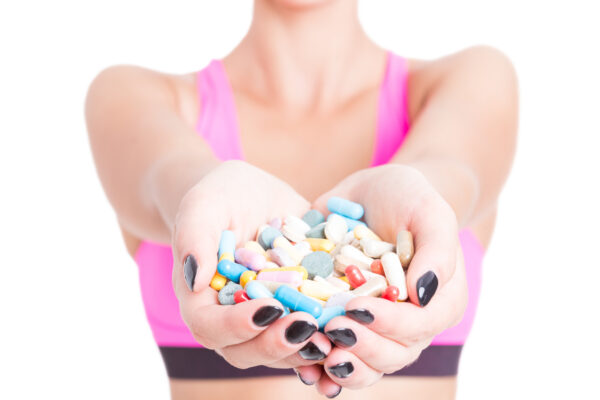
There’s little to no evidence that sports supplements, which are widely marketed to kids and teens, will make them bigger, stronger or faster. Most of these products’ false advertising are aimed at boosting sales.
Many teens drawn to performance-enhancing supplements think because they’re sold in stores, they must be safe and effective. But, Dr. Christopher Liebig, a sports medicine physician at Akron Children’s, says most of it’s false advertising aimed at selling products.
“There’s little to no proof they will make you bigger, stronger or faster. They’re not regulated, so they can make false claims that they enhance performance,” he said. “Kids don’t typically need them. If they would train the way they’re supposed to train, they would get the benefit they’re looking for. There is no shortcut.”
Supplements including creatine, protein powders and stimulants are the most common performance-enhancing substances used by teens. Some claim to help build muscle and strength or aid in recovery. But none of that is proven since supplements aren’t subject to U.S. Food and Drug Administration approval for safety and effectiveness. And even more problematic, they may be contaminated with potentially harmful substances like heavy metals, steroids or stimulants.
Dr. Liebig says the explosion in youth sports, the ultra-competitive culture and emphasis on achievement are part of the problem. But the products aren’t just used to gain an athletic edge. Some kids are turning to supplements and steroids to improve their appearance – using diet pills for weight loss, as well as protein, creatine and anabolic steroids to build muscles.

Dr. Christopher Liebig
Common sports supplements marketed to kids and teens
- Creatine. Synthetic creatine is sold in pills, powders, energy bars and drink mixes. Some of its side effects include weight gain, joint stiffness, muscle cramping, nausea, headaches and kidney damage from long term or excessive use.
- Amino acids. Amino acid supplements include glutathione, cysteine, arginine, leucine, glutamine and citrulline and are sold as a pill or powder. They claim to improve endurance, lower protein breakdown and reduce soreness from exercise, but none of this is proven.
- Most protein supplements are made of casein and whey. They usually come in powder form that can be mixed with a liquid. Protein supplements are often advertised as a way to build muscle.
- Caffeine is found in many products like energy drinks, soda and pills. Too much caffeine can cause headaches, irritability, nervousness, dehydration, upset stomach, sleep troubles and a racing heart.
How to get the most out of training without using supplements
- Eat a healthy, balanced diet. A dietitian or nutritionist can help plan a diet best for your age, weight, sports or activities.
- Train smart. A health coach or fitness instructor can develop a training plan that includes both strength and endurance training.
- Get enough sleep, this is integral to muscle recovery and growth.
- Don’t smoke or drink alcohol.
Talk to your doctor before taking any supplements
If you’re considering starting a sports supplement, be sure to do your research (find supplements that have been tested) and talk to your doctor or a registered dietitian first. Schedule an appointment online with Akron Children’s.










